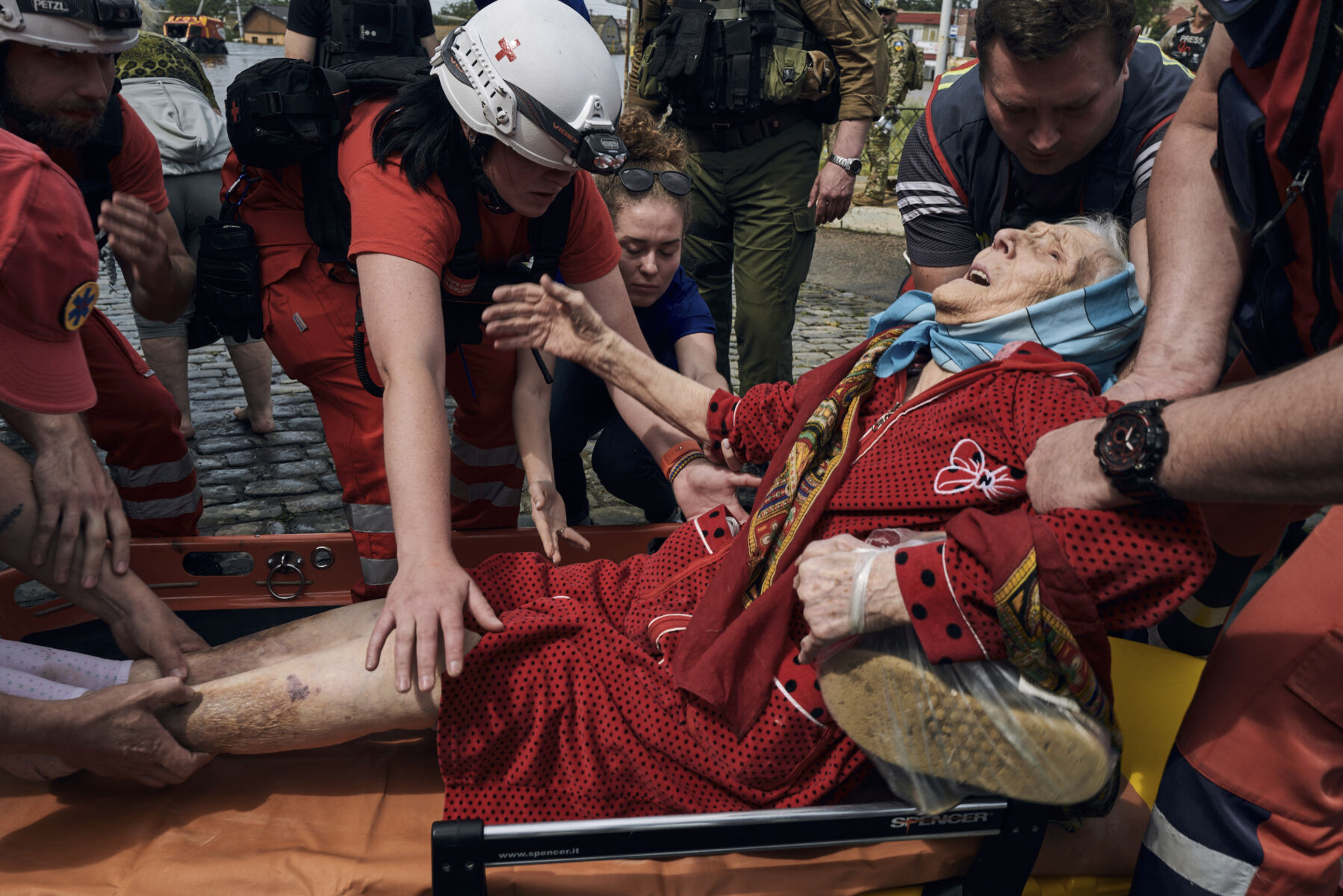Zelenskyy visits flood-hit Ukraine; warns of mines, chemicals, disease risks

As the aftermath of the Nova Kakhovka dam breach unfolds, Ukrainian President Volodymyr Zelenskyy visited the flooded regions, expressing concern over the dangers posed by floating mines, hazardous chemicals, and the potential spread of disease. Zelenskyy reported witnessing dead bodies floating in the water, a consequence of the Soviet-era dam’s collapse.
Oleksandr Prokudin, the regional governor, stated that flooding from the dam breach affected over 600 square kilometres on both the Ukrainian-held right bank of the Dnipro and the Russian-held left bank. Prokudin revealed that the average level of flooding reached 5.61 metres.
NATO Secretary General Jens Stoltenberg called for the alliance to accelerate humanitarian aid to Ukraine, following a briefing on the dam breach by Ukraine’s foreign minister. The World Health Organization (WHO) promptly sent emergency supplies to the country.
Ukraine accused Russia of shelling flood-hit areas during evacuations, resulting in at least one death and eight injuries in Kherson. Russia, in turn, accused Ukraine of shelling rescue workers in Russian-occupied regions. Satellite monitoring firm ICEYE’s flood data analysis revealed several towns and villages along the Dnipro river as either partially or entirely submerged by the dam’s waters.
The International Atomic Energy Agency confirmed that the Russian-occupied Zaporizhzhia Nuclear Power Plant continued receiving water from the Kakhovka Reservoir. The World Bank announced plans to conduct a rapid assessment of damage and needs arising from the dam’s destruction.
In central Ukraine, near the city of Uman, two missile strikes injured eight people, according to regional governor Ihor Taburets. Russian shelling in the town of Ukrainsk in Donetsk claimed the lives of three people, including a four-year-old boy, as reported by regional governor Pavlo Kyrylenko. Russian Defence Minister Sergei Shoigu claimed that Russian forces repelled four Ukrainian attacks in the Zaporizhia region, forcing Kyiv’s troops into a retreat with heavy losses.
South Africa expressed its willingness to host peace talks between Russia and Ukraine, while Russian President Vladimir Putin welcomed an African peace mission to Moscow. United States President Joe Biden and British Prime Minister Rishi Sunak reaffirmed their commitment to assisting Ukraine in repelling Russia’s invasion for as long as necessary during a joint press conference.
Oleg Orlov, a leader of the Nobel Peace Prize-winning human rights group Memorial, faced trial on charges of discrediting Russia’s armed forces. If found guilty, Orlov could face up to three years in prison. Kyiv accused Moscow of violating a UN anti-terrorism treaty at the International Court of Justice (ICJ) by equipping and funding pro-Russian forces responsible for shooting down flight MH17 in 2014, resulting in the deaths of all 298 passengers on board.
In response to Romania’s decision to reduce Russia’s diplomatic presence, the Russian foreign ministry announced plans to retaliate. Britain imposed new sanctions on Belarus for its role in Russia’s invasion of Ukraine, including a ban on importing gold, cement, wood, and rubber from the country.
Lastly, Slovakia’s defence ministry reported that Germany would donate two MANTIS short-range air defence systems to help strengthen Slovakia’s eastern border with Ukraine.
Latest Thailand News
Follow The Thaiger on Google News:


























